Making Astronomy Education Equitable, Diverse And Inclusive
Plenary Session
2nd Shaw-IAU Workshop on Astronomy for Education
Session timeblocks
Wednesday Oct. 7, 2020
UTC: 2 p.m. -
3:40 p.m.
Thursday Oct. 8, 2020
UTC: 7 a.m. -
8:40 a.m.
Schedule
-
Equity, Diversity and Inclusion in Astronomy Education
Wednesday Oct. 7, 2020
UTC: 2:10 p.m. - 2:30 p.m.Thursday Oct. 8, 2020
UTC: 7:10 a.m. - 7:30 a.m.Everybody benefits from an inclusive and accessible outreach and educational environment, not only people with disabilities. Inclusive resources and tools that include publics with functional diversity make astronomy more accessible and fun to everyone regardless of their physical condition. In this talk I will dwell a little on the benefits of inclusion and I will show some examples that have been successful in the field of astronomy outreach and education.
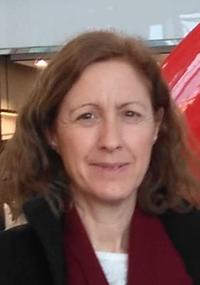
Amelia Ortiz Gil (University of Valencia Astronomical Observatory)
For more information about this talk click here
-
Impact of Racial Inequalities on African Development
Wednesday Oct. 7, 2020
UTC: 2:30 p.m. - 2:50 p.m.Thursday Oct. 8, 2020
UTC: 7:30 a.m. - 7:50 a.m.Racial inequalities in Africa mainly manifest in the economic exclusion of black people. Such economic exclusion transcends across the socio-economic fabric and limit education investments that parents can make on their children so that they can enroll into higher education and into STEM careers (including astronomy). The seeds of economic exclusion were sown by colonialism. Although a lot of progress has been achieved post-colonialism, a lot of challenges still persist.
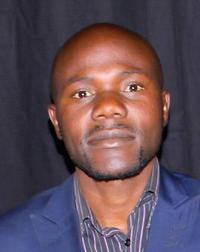
Tawanda Chingozha (Post-doc fellow (Stellenbosch University), Development Economics Fellow (OAD))
For more information about this talk click here
-
Astronomy: Why so exclusive?
Wednesday Oct. 7, 2020
UTC: 2:50 p.m. - 3 p.m.Thursday Oct. 8, 2020
UTC: 7:50 a.m. - 8 a.m.It may seem that these days pupils in developed countries have equal access to education and that modern technique and various media make astronomy as inclusive and accessible as never before. The results of a survey carried out by me in 2019 among more than 1000 pupils from secondary schools in Poland show that there are large groups of pupils who are undereducated and not interested in science. That problem is very complex but also clearly linked to the pupils’ gender and place of location. Those results show that a lot has to be done to make astronomy as equitable, diverse and inclusive, as it should be in the XXI century.
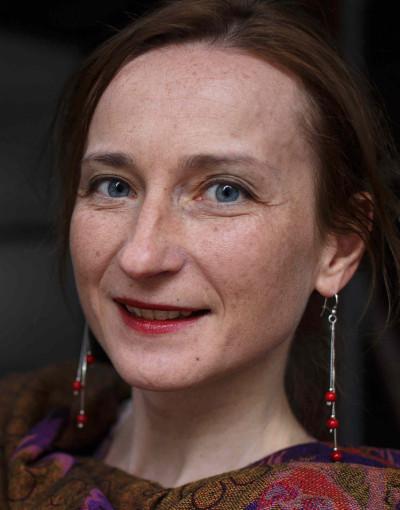
Joanna Molenda-Żakowicz (University of Wroc?aw)
For more information about this talk click here
-
Astronomy and inclusion with Astronomy with all senses project
Wednesday Oct. 7, 2020
UTC: 3 p.m. - 3:10 p.m.Thursday Oct. 8, 2020
UTC: 8 a.m. - 8:10 a.m.Astronomy with all senses, is a traveling exhibition specially designed for people with physical disabilities in order to let them know about astronomy and other space science to inspire them with the wonders of the universe. However, it is also a wonderful material from being used by people who have normal abilities to remind them about the importance of all senses. We are running the second stage of this itinerant material.
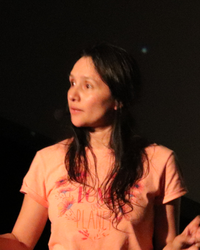
Ángela Patricia Pérez Henao (Planetario de Medellín)
For more information about this talk click here
-
Discussion Panel: Making Astronomy Education Equitable, Diverse and Inclusive
Wednesday Oct. 7, 2020UTC: 3:10 p.m. - 3:40 p.m.
Thursday Oct. 8, 2020
UTC: 8:10 a.m. - 8:40 a.m.Chair:
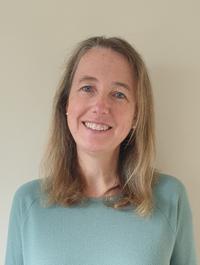
Natalie Fischer
Panel: Tawanda Chingozha
(Post-doc fellow (Stellenbosch University), Development Economics Fellow (OAD)), Joanna Molenda-Żakowicz
(University of Wrocław), Amelia Ortiz Gil
(University of Valencia Astronomical Observatory), Ángela Patricia Pérez Henao
(Planetario de Medellín)
Posters
-
Astronomy Education Research: towards teaching for diversity and inclusivity in South Africa
Tshiamiso Makwela (University of Cape Town)
COVID-19 pandemic has changed our understanding of promoting popular science. My main focus would be related to STEAM Innovation and Interactive Learning, such as Astro-Music (Integrating Science and Art) and User-Centered Education.
-
Classroom under the stars
Ángela Patricia Pérez Henao (Planetario de Medellín)
The content of the teacher training will leave a digital book about pedagogical and didactic reflections in relation to the teaching of astronomy at school. Also will be important to announce the results and experiences of the Meeting in the regions at all levels.
-
Diversity, equity and inclusion in Southern Brazil
Alan Alves-Brito (Institute of Physics - Federal University of Rio Grande do Sul)
I will briefly present some of our key projects developed in Porto Alegre focused on the promotion of diversity, equity and inclusion in Astronomy.
-
The Working Group of Gender Equity (WGGE) in India
Kuntal Misra (Aryabhatta Research Institute of observational sciencES (ARIES))
The Astronomical Society of India (ASI) is the first professional society in Asia to constitute a committee, Working Group for Gender Equity (WGGE), to work for gender equity and address relevant issues within the Astronomy and Astrophysics community of India. Since its inception, WGGE has organised annual sessions to raise awareness in the community and highlight the hindrances faced by women researchers. It was noted that the continuing gap between the fraction of Ph. D. women students and women faculties members remains a cause for concern. WGGE stresses the monitoring of gender statistics routinely and should be collected from various astronomy research institutions and universities across the country which can guide the way for a more diverse and inclusive environment. In this talk I will present the activities of WGGE and how this is changing the perspective of the community.




